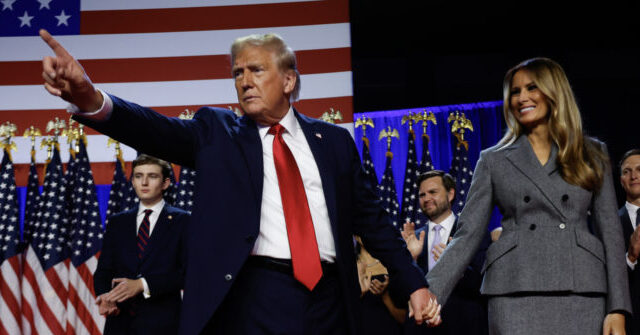Following Donald Trump’s recent election victory, stock futures soared, and Treasury yields experienced a significant uptick as traders shifted their focus to economic policies aligned with Trump’s agenda. The victory triggered a robust response from investors, eager to capitalize on expected changes such as new tariffs, tax cuts, and a potential overhaul of energy and regulatory policies. In premarket trading, futures for all major U.S. stock indexes advanced, with the S&P 500 futures climbing over 2 percent, Dow Jones Industrial Average futures increasing by nearly 3 percent, and Nasdaq Composite futures gaining around 1.3 percent. Notably, the Russell 2000 index, which tracks smaller, more economically sensitive companies, surged nearly 6 percent, signaling strong optimism regarding the domestic economy’s prospects.
This positive market reaction was reminiscent of the enthusiastic response following Trump’s surprise electoral win in 2016. Investors demonstrated a readiness to embrace the anticipated economic shifts, illustrating a collective belief that Trump’s presidency would spark accelerated growth. In the bond market, the aftermath of the election resulted in a selloff that pushed the yield on the 10-year U.S. Treasury above 4.46 percent, a notable increase from Tuesday’s close at 4.290 percent. The rise in bond yields typically reflects investor confidence in stronger economic growth expectations, as prices and yields move inversely.
The broader international markets also mirrored this bullish sentiment. European stocks took a cue from the positive U.S. market response, with key indexes associated with German, French, and U.K. shares experiencing notable gains. This trend indicates that the ramifications of Trump’s election were perceived as favorable by investors beyond U.S. borders, contributing to an uplift in global market sentiment. The interconnectedness of financial markets means that significant political events in one nation can spur movements and investor reactions in others.
In Asia, however, the response was somewhat mixed. The Japanese Nikkei 225 index experienced a robust increase of 2.6 percent, aligning with the bullish trend seen elsewhere. The positive sentiment towards Trump’s economic policies may have influenced Japanese investors to respond favorably, anticipating potential benefits from increased trade dynamics and economic growth. Conversely, China’s stock market took a hit, with the CSI 300 index declining by half a percentage point, while the Hang Seng Index, which tracks Hong Kong-listed companies, suffered a 2.3 percent drop, reflecting apprehensions and uncertainties about the implications of the Trump administration for the region.
The contrasting reactions within Asian markets underscore the complexities of the global economic landscape. Investors in Japan may have viewed Trump’s victory as an opportunity to bolster trade relations, while those in mainland China and Hong Kong appeared more cautious, possibly driven by concerns regarding protectionist measures that could emerge under Trump’s leadership. This divergence in market sentiment illustrates how geopolitical events can evoke varied responses across different economic landscapes, influenced by the specific trade relationships and economic dependencies each region holds.
Overall, Trump’s election victory marked a significant turning point in the financial markets, characterized by a surge in stock futures and rising Treasury yields. The enthusiasm from investors underscored a collective anticipation for an economic landscape shaped by tax cuts and regulatory changes aligned with Trump’s agenda. As markets adjusted, both in the U.S. and internationally, the varied responses highlighted the interconnected nature of global finance, showcasing how political developments, especially those involving influential leaders like Trump, can lead to immediate repercussions across diverse market sectors, influencing trading strategies for the days and weeks to come.

